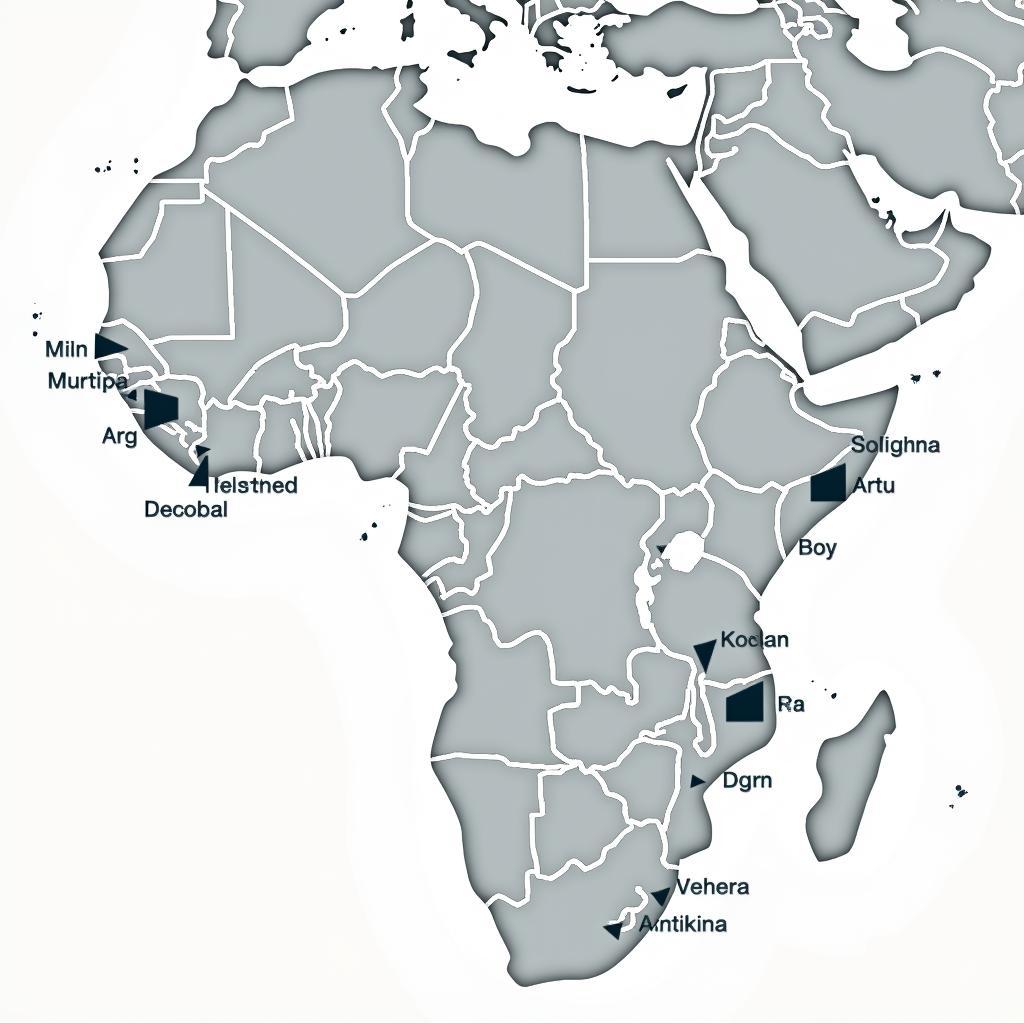The African Continental Free Trade Area: A Game Changer for UPSC Aspirants
The African Continental Free Trade Area (AfCFTA) has emerged as a topic of immense significance for anyone looking to understand the evolving geopolitical and economic landscape of Africa, especially for those preparing for the UPSC examination. This comprehensive agreement, poised to revolutionize trade and cooperation across the continent, is not just a trade pact; it’s a bold vision for Africa’s future.
Understanding the African Continental Free Trade Area (AfCFTA)
The AfCFTA, launched in 2018 and officially commenced trading in January 2021, aspires to create a single market for goods and services in Africa, with free movement of people and investments. It aims to deepen the economic integration of the continent, fostering industrialization, competitiveness, and ultimately, shared prosperity.
Why AfCFTA Matters for UPSC Aspirants
For UPSC aspirants, the AfCFTA presents a multi-dimensional topic with relevance across various subjects, including:
- International Relations: It reflects the changing dynamics of global trade, South-South cooperation, and Africa’s role in the emerging world order.
- Economy: The AfCFTA’s potential impact on African economies, intra-African trade, industrialization, and poverty reduction are crucial areas of study.
- Geography: Understanding the geographical factors influencing trade patterns, infrastructure development, and regional integration within Africa is essential.
- Social Issues: The agreement’s implications on employment, labor migration, and social development in Africa are critical areas of analysis.
Key Features and Objectives of AfCFTA
The AfCFTA is built on key pillars aimed at dismantling trade barriers and fostering economic integration:
- Tariff Reduction: Gradual elimination of tariffs on 90% of goods traded between African countries.
- Non-Tariff Barriers: Addressing and reducing obstacles like cumbersome customs procedures and regulations.
- Investment: Promoting and facilitating investments across African borders.
- Free Movement of People: Easing the movement of skilled professionals and business people within the continent.
- Digital Trade: Promoting e-commerce and harnessing the potential of the digital economy in Africa.
 Image depicting increased trade activity within Africa
Image depicting increased trade activity within Africa
Potential Benefits and Challenges
The AfCFTA holds immense potential for Africa’s economic transformation:
- Boosting Intra-African Trade: Currently, intra-African trade stands at a low 17% compared to other regions. AfCFTA aims to significantly boost this figure.
- Industrialization and Value Addition: By creating a larger market, AfCFTA encourages the development of regional value chains and promotes industrialization within Africa.
- Job Creation: Increased trade and investment are expected to generate much-needed jobs, particularly for Africa’s youth.
- Poverty Reduction: Economic growth spurred by the AfCFTA is envisaged to contribute to poverty reduction across the continent.
However, realizing this potential comes with challenges:
- Infrastructure Deficits: Inadequate infrastructure, including transportation and energy, poses a significant obstacle to seamless trade.
- Political Will and Cooperation: Effective implementation requires sustained political will and coordination among member states.
- Capacity Building: Building the capacity of African businesses and institutions to fully leverage the benefits of the agreement is crucial.
- Addressing Inequality: Measures to ensure equitable distribution of benefits and avoid widening disparities within and among countries are vital.
AfCFTA’s Place in a Globalized World
The AfCFTA emerges at a time of shifting global trade patterns and rising protectionism.
It positions Africa as a key player in the global economy by:
- Enhancing Africa’s Negotiating Power: A united African market strengthens the continent’s position in global trade negotiations.
- Attracting Foreign Direct Investment: The AfCFTA’s large market size and growth potential are attractive to foreign investors.
- Promoting Regional Integration: It serves as a model for other developing regions striving for economic integration.
The Road Ahead: Realizing the AfCFTA’s Vision
The success of the AfCFTA hinges on:
- Effective Implementation: Translating the agreement’s provisions into concrete actions and policies is crucial.
- Infrastructure Development: Investing in critical infrastructure, including transportation, energy, and digital connectivity, is paramount.
- Private Sector Engagement: Fostering a conducive environment for the private sector to thrive and drive economic growth is essential.
- Building Human Capital: Investing in education, skills development, and technological expertise will empower Africa’s workforce.
Conclusion: AfCFTA – A Defining Chapter for Africa
The African Continental Free Trade Area represents a historic opportunity for Africa. Its success depends on the commitment of African nations to work together, address challenges, and harness the collective power of the continent. For UPSC aspirants, a thorough understanding of the AfCFTA, its nuances, and its implications is essential for navigating the complexities of Africa’s development trajectory in the 21st century.
FAQs
1. What is the significance of the African Continental Free Trade Area?
The AfCFTA aims to create a single market for goods and services in Africa, boosting intra-African trade, attracting foreign investment, and promoting economic integration and development.
2. How does the AfCFTA impact UPSC examinations?
The AfCFTA is relevant to various UPSC subjects like International Relations, Economy, Geography, and Social Issues, making it a crucial topic for aspirants.
3. What are the key challenges to the AfCFTA’s success?
Infrastructure deficits, political will, capacity building, and addressing inequality within and among African nations are some of the key challenges.
4. How does the AfCFTA position Africa in the global economy?
By creating a single market, the AfCFTA enhances Africa’s negotiating power in global trade, attracts foreign investment, and promotes regional integration.
5. What is the role of the African Union in the AfCFTA?
The African Union plays a crucial role in facilitating negotiations, providing technical support, and monitoring the implementation of the AfCFTA.
For more insights on related topics, you can explore:
Need assistance with your UPSC preparation journey? Contact us!
Phone: +255768904061
Email: kaka.mag@gmail.com
Address: Mbarali DC Mawindi, Kangaga, Tanzania.
Our dedicated team is available 24/7 to provide comprehensive support and guidance.
